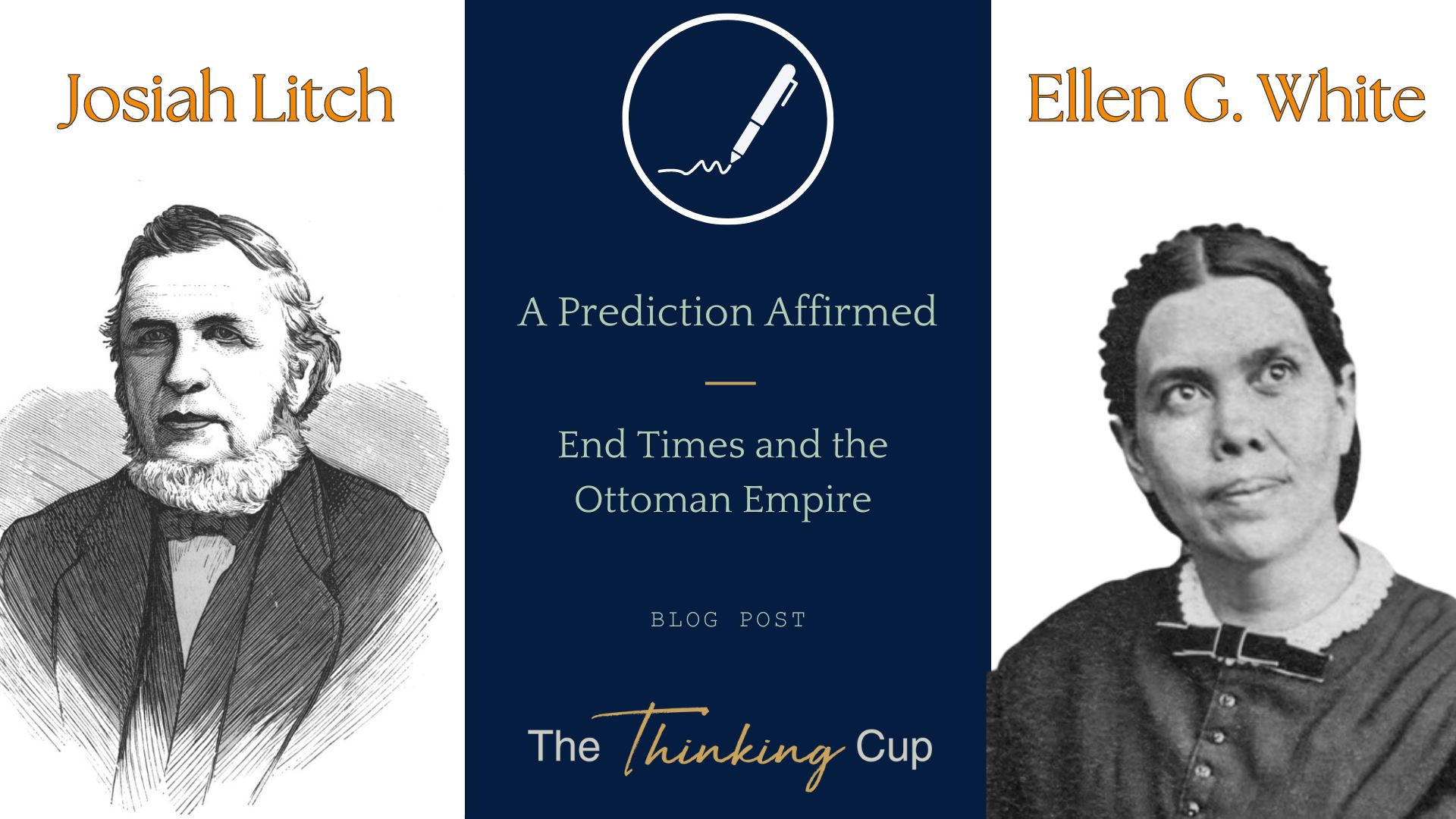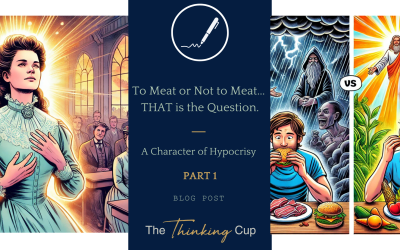In 1838, Josiah Litch, a prominent figure in the Millerite movement, boldly declared a prophecy that sent shockwaves through the religious world. His prediction, based on a striking interpretation of Revelation 9:15, was nothing short of astonishing: the mighty Ottoman Empire (Turkey) would crumble on August 11, 1840. This wasn’t just any empire—it was a vast and powerful force, ruling over large swaths of Europe, Asia, and Africa. Litch’s confident forecast became a beacon of anticipation for many.
Ellen White later praised this prediction in her famous work, The Great Controversy, where she recounted:
“In the year 1840 another remarkable fulfillment of prophecy excited widespread interest. Two years before, Josiah Litch, one of the leading ministers preaching the second advent, published an exposition of Revelation 9, predicting the fall of the Ottoman Empire. According to his calculations, this power was to be overthrown “in A.D. 1840, sometime in the month of August;” and only a few days previous to its accomplishment he wrote: “Allowing the first period, 150 years, to have been exactly fulfilled before Deacozes ascended the throne by permission of the Turks, and that the 391 years, fifteen days, commenced at the close of the first period, it will end on the 11th of August, 1840, when the Ottoman power in Constantinople may be expected to be broken. And this, I believe, will be found to be the case.”—Josiah Litch, in Signs of the Times, and Expositor of Prophecy, August 1, 1840.
At the very time specified, Turkey, through her ambassadors, accepted the protection of the allied powers of Europe, and thus placed herself under the control of Christian nations. The event exactly fulfilled the prediction. When it became known, multitudes were convinced of the correctness of the principles of prophetic interpretation adopted by Miller and his associates, and a wonderful impetus was given to the advent movement.” [1]
The atmosphere around this prediction was electric! People waited in breathless anticipation for the empire to collapse, convinced they were witnessing the literal unfolding of biblical prophecy. But as the days of August ticked by, something strange happened—nothing at all. The Ottoman Empire didn’t fall. August 11, 1840, came and went without a whisper of upheaval. Litch, however, wasn’t about to give up that easily.
Faced with this embarrassing failure, Litch scrambled to salvage his prophecy. By November, he put forth a new explanation. Turkey, he claimed, had rejected a European peace offer on August 15, 1840, and this, in his view, guaranteed war and signaled the Ottoman Empire’s doom. But as 1841 dawned and no war still broke out, Litch revised his story again. He now argued that the fall had indeed happened on August 11, 1840, but it wasn’t the fiery collapse everyone expected. Instead, Turkey had “voluntarily surrendered” its supremacy to the influence of Christian Europe, making its ruler a puppet of European powers.
This sudden shift in the narrative didn’t sit well with many Christians. Skepticism grew. After all, the Ottoman Empire was still standing tall, controlling vast regions of North Africa, Arabia, Palestine, Iraq, and more. Reverend O.E. Daggett, a sharp critic of the Millerites, pointed out that Turkey clearly hadn’t fallen. Another critic, James Hazen, ridiculed the idea, calling it “ridiculous” to suggest that accepting European aid equaled a fall. Yet Litch continued to insist that his prediction had come true, albeit in an unexpected way.
If you fast-forward a bit, you’ll find that the Ottoman Empire didn’t meet its actual demise in 1840, or even close to it. By 1862, it was still a formidable force, controlling much of Southern Europe, Northern Africa, and the Middle East. In fact, the empire’s decline was a slow and steady process. The real death blow didn’t come until World War I, when Turkey, siding with Germany, found itself on the losing side. After a series of crushing defeats, Turkey was eventually occupied by British, French, and Italian forces in 1918. This occupation, followed by a fierce rebellion, led to the establishment of the Turkish Republic in 1923—the true end of the Ottoman Empire. So, if you want to pinpoint the actual fall of Turkey, 1923 is your year.
But did Litch’s bold prediction convince the masses, as Ellen White claimed? White confidently stated that “multitudes were convinced of the correctness” of Miller’s calculations due to Litch’s prediction. However, the reality was much less triumphant. Far from rallying support, Litch himself lamented the widespread rejection of his ideas. His frustration was palpable:
“There are few persons, in New England at least, whose minds were not arrested and turned to the 11th of August; and vast multitudes were ready to say, ay, did say, If this event takes place according to the calculation, at the time specified, we will believe the doctrine of the advent near. But how is it with them now? Why, just as it was with the old Jews in the days of Christ; when he was every day performing the most stupendous miracles in their sight, they said to him, ‘Master, we would see a sign of thee.’ So now: men desire a sign from heaven. But let them be assured, they can never have a more convincing one than this…” [2]
Litch’s frustration paints a very different picture than White’s glowing account. Despite his best efforts, the multitudes were unconvinced, and Litch’s grand prophecy seemed to fizzle rather than ignite belief. So, who should we trust to paint the true picture—Litch, who was there on the ground, or Ellen White, who was just a teenager at the time? You decide!
Litch abandoned many of his earlier, more confident predictions as he grew older. By 1867, he rejected the widely held belief that the 2300 days of Daniel 8:14 referred to years, instead interpreting them as literal days. In 1873, his views on the sixth trumpet of Revelation 9:15 shifted as well:
“The exact hour for [the angels] to be loosed was fixed. They were prepared unto an hour, day, month, and year. That is, the exact time for their loosing was fixed, to a year, a month, a day, and an hour; it is not an exact period during which they should act.” [3]
Gone were his claims of prophecy fulfilled on August 11, 1840. Litch’s new interpretation was more aligned with the original Greek, which refers to a specific date rather than a duration of time—a far cry from his earlier, bolder assertions.
Modern translations of Revelation 9:15 echo this clarity:
“So the four angels, who had been prepared for the hour and day and month and year, were released to kill a third of mankind.” (Revelation 9:15, NKJV)
“Then the four angels who had been prepared for this hour and day and month and year were turned loose to kill one-third of all the people on earth.” (Revelation 9:15, NLT)
“And the four angels who had been kept ready for this very hour and day and month and year were released to kill a third of mankind.” (Revelation 9:15, NIV)
Though initially captivating, the excitement around Litch’s prediction crumbled under the weight of time and reality. In later years, W.W. Prescott and other scholars would uncover numerous errors in Litch’s interpretations, further discrediting his prophecy. Their research revealed that even the date of August 11, 1840, was based on flawed historical data. Ultimately, Litch would walk away from his earlier beliefs, admitting that the whole theory didn’t hold up.
It’s clear now that Litch’s prediction for August 11 was incorrect. And yet, Ellen White continued to endorse this date, insisting that it convinced many of the accuracy of Miller’s calculations. However, the inconsistencies between what Litch himself said and the claims in The Great Controversy raise serious doubts. As Litch’s own complaints show, few believed in his prediction, and his theory wasn’t even made public until after the fact. These discrepancies make it clear that Ellen White’s writing on this matter was not guided by divine insight.
In Christian Love-

[1] Ellen Gould White, The Great Controversy Between Christ and Satan, vol. 5, Conflict of the Ages Series (Pacific Press Publishing Association, 1911), 334–335.
[2] “Ronald L. Numbers – The Disappointed, pg. 87”
[3] Litch, A Complete Harmony of Daniel and the Apocalypse.




What is interesting is that I was a history major in college and had never really thought about this faulty interpretation of the so called demise of the Ottoman Empire. I am now 60 and it wasn’t until I was about 50 that I was reading a book that discussed the outcome of World War 1 that it hit me.
I have a three volume history of the Byzantine Empire and when I was reading that a second time about ten years ago I noticed that the Byzantines and the Ostrogoths fought beyond 538 for quite a few years so that date does not hold up either. Had never noticed that before as well.